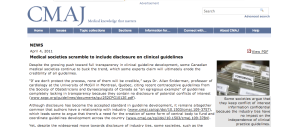June 2011
Dr. Colman was the Director of the Montreal Neurological Institute.
Last June I sat in David Colman’s office – having accepted his invitation for a private tour of “the Neuro”.
Had I known he had less than a year to live, how much longer I would have lingered!
There was so much more I had hoped to learn from him, so much more he had to give – not just to the world of science and medicine – that loss is inestimable – but also to the world of writing and philosophy.
Dr. Colman’s unexpected death this month has left a surprising emptiness in me – I only ever met the man once. But his monthly blog musings (Director’s Corner, which he called his “monthly opportunity to vent”), and our occasional e-mail exchanges gave me insight and inspiration, as I’m sure they did for many.
A busy agenda had been arranged for me that day at the Neuro – yet our conversation was unhurried, drifting easily from current affairs, to the new iPad, to multiple sclerosis and myelin. He scribbled diagrams on my notepad, explaining the complexities of his research on cancer metastasis, and finally, as I moved reluctantly towards the door, photos of his daughters, one of them the same age as my own, turned our conversation to parenting.Read More »


